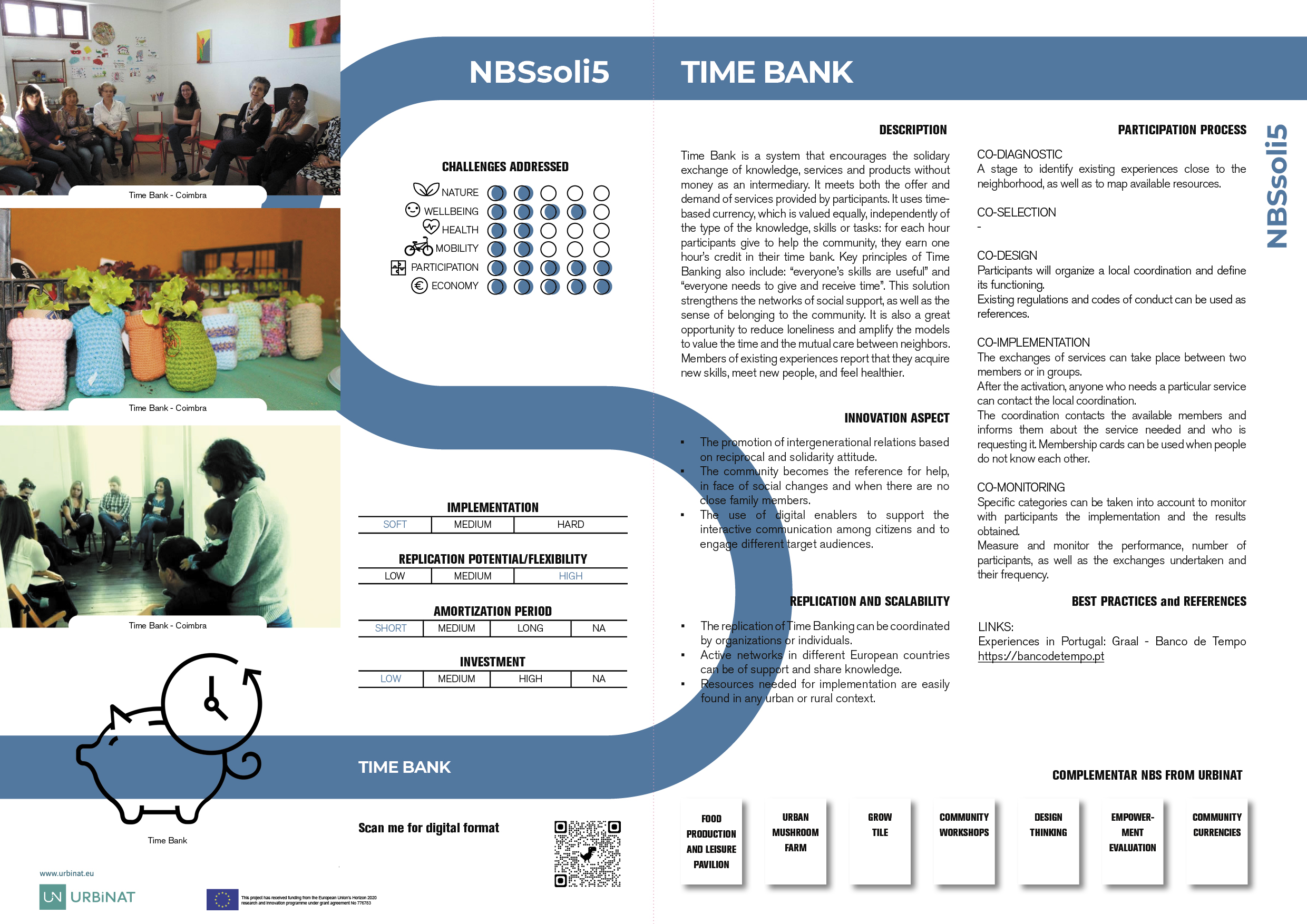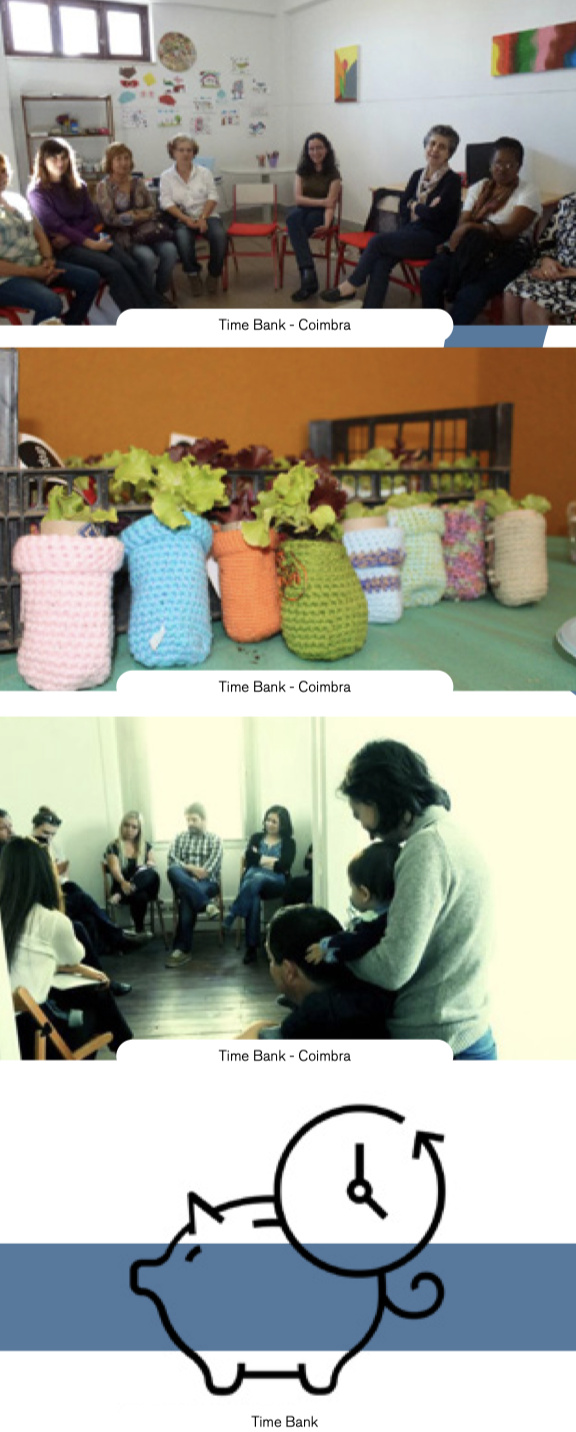Time Bank Solutions
CHALLENGES ADDRESSED
Score impact
Nature
Wellbeing
Health
Mobility
Participation
Economy
DESCRIPTION
Time Bank is a system that encourages the solidary exchange of knowledge, services and products without money as an intermediary. It meets both the offer and demand of services provided by participants. It uses timebased currency, which is valued equally, independently of the type of the knowledge, skills or tasks: for each hour participants give to help the community, they earn one hour’s credit in their time bank. Key principles of Time Banking also include: “everyone’s skills are useful” and “everyone needs to give and receive time”. This solution strengthens the networks of social support, as well as the sense of belonging to the community. It is also a great opportunity to reduce loneliness and amplify the models to value the time and the mutual care between neighbors. Members of existing experiences report that they acquire new skills, meet new people, and feel healthier.

Time Bank Solutions
[NBS Card] Time Bank
Time Bank is a system that encourages the solidary exchange of knowledge, services and products without money as an intermediary. It meets both the offer and demand of services provided by participants. It uses time- based currency, which is valued equally, independently of the type of the knowledge, skills or tasks: for each hour participants give to help the community, they earn one hour’s credit in their time bank. Key principles of Time Banking also include: “everyone’s skills are useful” and “everyone needs to give and receive time”. This solution strengthens the networks of social support, as well as the sense of belonging to the community. It is also a great opportunity to reduce loneliness and amplify the models to value the time and the mutual care between neighbors. Members of existing experiences report that they acquire new skills, meet new people, and feel healthier.
INNOVATION ASPECT
• The promotion of intergenerational relations based on reciprocal and solidarity attitude.
• The community becomes the reference for help, in face of social changes and when there are no close family members.
• The use of digital enablers to support the interactive communication among citizens and to engage different target audiences.
REPLICATION AND SCALABILITY
• The replication of Time Banking can be coordinated by organizations or individuals.
• Active networks in different European countries can be of support and share knowledge.
• Resources needed for implementation are easily found in any urban or rural context.
PARTICIPATION PROCESS

-
1
CO-DIAGNOSTIC
A stage to identify existing experiences close to the neighborhood, as well as to map available resources.
-
2
CO-DESIGN
Participants will organize a local coordination and define its functioning.
Existing regulations and codes of conduct can be used as references.
-
3
CO-IMPLEMENTATION
The exchanges of services can take place between two members or in groups.
After the activation, anyone who needs a particular service can contact the local coordination.
The coordination contacts the available members and informs them about the service needed and who is requesting it. Membership cards can be used when people do not know each other.
-
4
CO-MONITORING
Specific categories can be taken into account to monitor with participants the implementation and the results obtained.
Measure and monitor the performance, number of participants, as well as the exchanges undertaken and their frequency.

